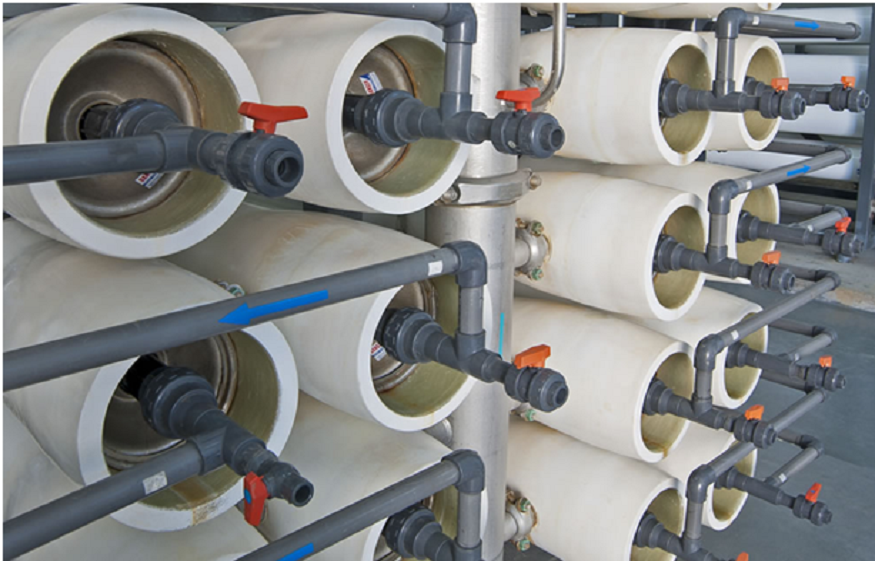In today’s world, access to clean and safe drinking water is more important than ever. With increasing pollution, industrialization, and population growth, water sources are becoming increasingly contaminated with harmful substances. This has led to a growing demand for effective water purification technologies. Among the most advanced and efficient solutions are water purification membrane filters. These systems have revolutionized the way we treat water, offering numerous advantages over traditional methods. In this blog post, we’ll explore the key benefits of using membrane filters for water purification.
1. Superior Filtration Efficiency
One of the most significant advantages of membrane filters is their ability to remove a wide range of contaminants with exceptional precision. Membrane filters operate at a microscopic level, using semi-permeable barriers to separate impurities from water. Depending on the type of membrane used, these filters can remove particles as small as 0.0001 microns, including bacteria, viruses, heavy metals, chemicals, and even dissolved salts.
For example, reverse osmosis (RO) membranes are particularly effective at removing dissolved solids, such as lead, arsenic, and fluoride, while ultrafiltration (UF) membranes excel at eliminating bacteria and viruses. This level of filtration ensures that the water you consume is not only safe but also free from unpleasant tastes and odors.
2. Chemical-Free Purification
Many traditional water purification methods rely on chemicals like chlorine or ozone to disinfect water. While these chemicals are effective at killing pathogens, they can leave behind harmful byproducts and alter the taste of the water. Membrane filters, on the other hand, provide a chemical-free solution to water purification.
By physically blocking contaminants, membrane filters eliminate the need for chemical additives. This makes them an eco-friendly option that reduces the risk of exposure to harmful substances. Additionally, chemical-free purification ensures that the water retains its natural taste and mineral content, providing a healthier and more enjoyable drinking experience. Read mre: https://abin.ir/products/industrial-water-treatment/membrane-filtration-products
3. Versatility and Adaptability
Water purification membrane filters are highly versatile and can be used in a variety of settings, from small household systems to large-scale industrial applications. They are suitable for treating water from different sources, including tap water, groundwater, seawater, and even wastewater. This adaptability makes membrane filters an ideal choice for diverse needs, whether you’re looking to improve the quality of your drinking water at home or implement a comprehensive water treatment solution for a manufacturing facility.
Moreover, membrane filters can be customized to address specific water quality challenges. For instance, in areas with high levels of salinity, desalination membranes can be used to convert seawater into potable water. In regions with heavy industrial pollution, specialized membranes can target specific contaminants, such as heavy metals or organic compounds.
4. Energy Efficiency
Modern membrane filtration systems are designed to be energy-efficient, making them a sustainable choice for water purification. Advances in technology have led to the development of low-energy membranes and optimized filtration processes that minimize power consumption. For example, newer reverse osmosis systems now require less pressure to operate, reducing energy usage without compromising performance.
In addition, membrane filters often have a longer lifespan compared to other purification methods, which means fewer replacements and lower overall energy consumption. This not only saves money but also reduces the environmental impact of water treatment.
5. Compact and Space-Saving Design
Another advantage of membrane filters is their compact design. Unlike traditional water treatment systems, which can be bulky and require significant space, membrane filtration systems are often small and modular. This makes them ideal for use in homes, offices, and even remote locations where space is limited.
The compact design also allows for easy installation and integration into existing plumbing systems. Whether you’re installing an under-sink reverse osmosis system or a portable ultrafiltration unit, membrane filters offer a convenient and space-saving solution for clean water.
6. Cost-Effectiveness
While the initial investment in a membrane filtration system may be higher than some traditional methods, the long-term cost savings are substantial. Membrane filters require minimal maintenance and have lower operational costs compared to chemical-based systems. They also reduce the need for bottled water, which can be expensive and environmentally damaging.
Furthermore, the durability and efficiency of membrane filters mean that they often pay for themselves over time. By providing a reliable and consistent supply of clean water, these systems help households and businesses save money while protecting their health.
7. Environmental Benefits
Water purification membrane filters offer several environmental benefits. By eliminating the need for chemical disinfectants, they reduce the release of harmful byproducts into the environment. Additionally, membrane filtration systems produce less wastewater compared to traditional methods, especially in the case of advanced technologies like closed-loop reverse osmosis.
Membrane filters also play a crucial role in water conservation. For example, in industrial settings, they can be used to treat and recycle wastewater, reducing the demand for freshwater resources.
8. Improved Health and Safety
The primary goal of water purification is to protect human health, and membrane filters excel in this regard. By removing harmful contaminants, these systems help prevent waterborne diseases and long-term health issues caused by exposure to toxins.
Membrane filters also provide peace of mind by ensuring that the water you drink is free from harmful substances. Whether you’re at home, at work, or traveling, you can trust that a membrane filtration system will deliver safe and clean water.
9. Scalability for Various Applications
Membrane filtration technology is highly scalable, making it suitable for a wide range of applications. From small portable units for camping and emergency use to large-scale systems for municipalities and industries, membrane filters can be tailored to meet specific needs. This scalability ensures that everyone, regardless of their water requirements, can benefit from this advanced purification method.
10. Future-Proof Technology
As water quality challenges continue to evolve, membrane filtration technology is constantly advancing to meet new demands. Researchers are developing innovative membranes with enhanced properties, such as increased durability, higher flux rates, and improved resistance to fouling. These advancements ensure that membrane filters remain at the forefront of water purification, providing effective solutions for years to come.
Conclusion
Water purification membrane filters represent a significant leap forward in water treatment technology. With their superior filtration efficiency, chemical-free operation, versatility, and environmental benefits, these systems offer a reliable and sustainable solution for clean water. Whether you’re looking to improve the quality of your drinking water at home or implement a large-scale water treatment system, membrane filters provide numerous advantages that make them an excellent choice.
Investing in a membrane filtration system is not just an investment in clean water—it’s an investment in your health, your wallet, and the planet. As we face growing water quality challenges, embracing advanced technologies like membrane filters is essential to ensuring a safe and sustainable future for all.


